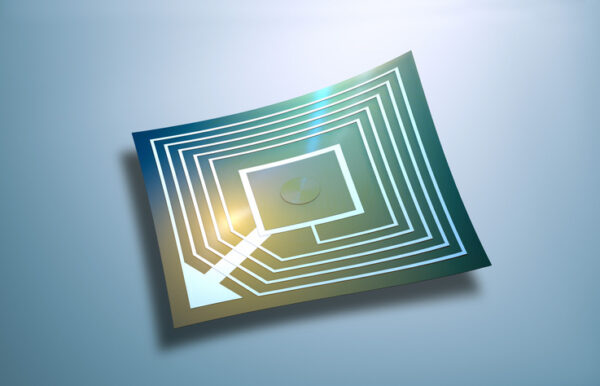
In today’s fast-paced healthcare environment, hospitals face numerous challenges, such as ensuring patient safety, streamlining workflows, and reducing costs. One solution showing immense promise in enhancing medication management and automated workflows is the integration of Radio Frequency Identification (RFID) technology with existing Barcode Medication Systems (BCMS). This article explores the benefits of implementing RFID in healthcare settings and how hospitals can gradually transition from barcode to RFID-enabled medication systems, leading to substantial cost savings and improved patient care.
The role of barcode medication systems

With the Rise of AI, What IP Disputes in Healthcare Are Likely to Emerge?
Munck Wilson Mandala Partner Greg Howison shared his perspective on some of the legal ramifications around AI, IP, connected devices and the data they generate, in response to emailed questions.
BCMS have been a vital tool in healthcare facilities, helping prevent medication errors and enhance patient safety since its introduction in the US in 2000. It involves scanning barcodes on medication containers, patient wristbands, and healthcare provider identification badges to verify the “Five Rights” of medication administration: right patient, right drug, right dose, right route, and right time. The use of BCMS has significantly reduced medication errors, improved patient outcomes, and minimized adverse drug events.
Advantages of RFID technology in healthcare
RFID has gained wider adoption, especially in real-time inventory tracking in institutions like hospitals and drug manufacturers where RFID tags enhance security for sensitive shipments and enable alerts to be sent when packages are tampered with.
RFID technology takes the capabilities of BCMS a step further by introducing automated and real-time tracking of medication and medical supplies. RFID tags use electromagnetic fields to transfer data, allowing for non-contact, wireless communication with reading devices. When integrated into medication management processes, RFID offers several key advantages:
- Improved Accuracy and Efficiency: RFID can track multiple items simultaneously, streamlining inventory management and reducing manual data entry errors. This efficiency results in fewer stockouts, minimized waste, and better resource allocation.
- Real-Time Visibility: RFID enables real-time monitoring of medication inventory levels, expiration dates, and usage patterns. This data can empower hospitals to make informed decisions about stock management and reordering, ultimately reducing costs.
- Enhanced Patient Safety: RFID-enabled medication systems further reduce the risk of medication errors by providing accurate patient identification and ensuring the right medication reaches the right patient at the right time.
- Automated Workflows: RFID automation allows for seamless integration into existing hospital systems, enabling automatic restocking alerts, medication tracking, and streamlined workflow processes for healthcare providers.
A phased approach for RFID implementation
Fully transitioning from a barcode to an RFID-enabled medication system may seem daunting for many healthcare facilities due to the associated costs and complexities. However, a stepwise implementation strategy can help hospitals make a smoother transition.
- Pilot Studies: Begin with small-scale RFID pilot studies in specific hospital units, such as the pharmacy or critical care areas. This allows the hospital staff to familiarize themselves with the technology, identify any challenges, and assess its impact on workflow and cost savings.
- Hybrid Approach: Implement a hybrid system where certain high-value or critical medications are tagged with RFID while continuing to use barcodes for others. This gradual approach allows staff to adjust to the new technology gradually and gives room for further optimization.
- Vendor Collaboration: Collaborate with BCMS vendors that offer RFID integration options. This enables hospitals to maintain compatibility with existing systems while gradually expanding their RFID usage.
- Training and Education: Properly train and educate healthcare professionals about RFID technology and its benefits. This fosters acceptance and cooperation during the transition process.
The integration of RFID technology with BCMS holds immense potential for revolutionizing medication management in healthcare facilities. Through improved accuracy, real-time visibility, and automated workflows, RFID-enabled systems enhance patient safety and contribute to substantial cost savings for hospitals. By adopting a stepwise approach to RFID implementation, healthcare facilities can embrace the benefits of this cutting-edge technology while ensuring a seamless transition from barcodes to RFID in their medication management processes.
Photo: artpartner-images, Getty Images
Karl Hoelper serves as the Director of Marketing and Smart Packaging at CCL Healthcare, the healthcare division of CCL Label. In this role, he is deeply committed to patient safety and medication adherence, striving to deliver cutting-edge smart and intelligent packaging solutions for the pharmaceutical, medical device, and life science sectors. In addition to his professional endeavors, Karl volunteers his marketing expertise as the Marketing Chair for the UnitvisID Alliance. He is also an active participant in several RFID-related working groups, including those organized by GS1 and Michigan State's Axia Labs.














